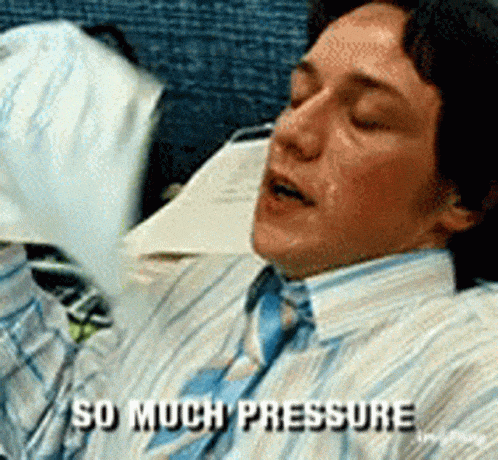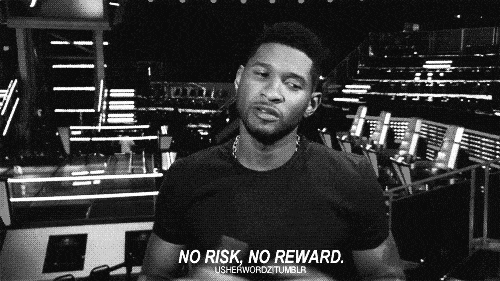A, B, C, and… D. These are the four proven personality types, and we’re here to talk about the D today (no jokes please). Type D is a unique personality usually typified by rather negative emotions.
The urge to answer the question as to why humans behave a certain way to react towards occurrences birthed is a reason for the research into personality types.
Trust me to leave your throat wet though; you can read up on the other personality types below.
- Type A personality: What does it mean
- What to know about the Type B personality
- Type C personality: All you need to know
Alright, Alright, Alright…

Let’s get to the D. The letter D in type D was gotten from “distressed” or “depressed” personalities. This personality was recognized by Johan Denollet and Robert A. Pederson in 1990. To verify if you have a Type D personality, you must possess a couple of negative traits that Type D’s exhibit.
People with this personality can slip into depression or worse, mental health disorder. Don’t be scared though; this is not prominent in everyone but there is a possibility it can happen.
I know this particular part of this series seems as gloomy as the type Ds but don’t worry. There is a treatment for it. Let me walk you through itemized examples of traits that describe a D.
READ ALSO: TYPES OF PERSONALITIES
Type D Personality Traits
This personality type is a mental construct that describes people that frequently experience negative emotions. They are usually discouraged from being socially active. Usually, you’ll catch them weirdly quiet in social gatherings showing little emotions.
Let’s look at some core traits of Type D personalities:
Irritable

I have come across a lot of disgustingly irritable people. They get easily annoyed and can switch from happy to disgusted within seconds. They are very unpredictable and would stay in their room wishing they had more friends rather than go out and make friends.
Anxiety

You would think that a person so irritable would have an insane amount of self-confidence, but that’s not true. Type D personalities are successfully overly anxious people. This explains their love for isolation and yearning for privacy.
RELATED: EASY WAYS TO BUILD CONFIDENCE
Pessimistic

Do you know those people that never see positivity in life? They will tell you nothing matters because we will all die in the end. You can never catch them enjoying the moment.
To know more about pessimistic people, you should watch Squidward in SpongeBob.
READ ALSO: 50 EMPOWERING KNOW YOUR WORTH QUOTES TO BOOST YOUR CONFIDENCE
Unstable under pressure

Stability under pressure is an essential skill to survive in today’s workforce. Type D personalities are severely lacking in this. They are the architect of their problems most times.
They can usually find it hard to find morale to work and would often wait till the work piles. When it piles up, they would end up performing poorly.
Frequently Gloomy

The picture of an original type D should have formed in your head right now. By their face, you shall know them. You can find them always stone-faced, leaving you wondering whether they’d seen the devil the night before.
There are other traits to consider such as;
- Sadness
- Hopelessness
- Fears to lose control
- Makes wrong decisions
- Avoidance etc.
Oh, what a day for these guys, right?
From the aforementioned scope, it can be easy to want to shed off a type D personality. However, type D personalities also come with positive traits. Let’s take a look at these traits. Cheer up!

READ ALSO: SMILING DEPRESSION: E NO DEY SHOW FOR FACE
Positive traits of Type D personalities
How can a personality so gloomy have a positive side?
Strong-willed
Another writer might call this stubborn, but not me. You would find that Type D personalities are a very determined set of people. They believe in their abilities, intellect, and decision-making.
Other people might find them very blunt and rude. Well, little matter because it can be a compliment to the D’s.
CHECK: THINGS TO MASTER TO BE SUCCESSFUL IN LIFE
Succeeds due to their high rendency to worry
Some schools of thought might say worrying is not best for success. I beg to differ. Most successful people in their respective fields are big overthinkers. They worry about a problem until they can find a solution to it.
Worrying helps type D personalities because their mind stays fixated on the issue until they can find a solution.
Competitive

In contrast with their rather dull, anxious, pessimistic, irritable traits, Type D personalities can be very competitive. In a suitable environment, they would strive to be their best and play past their strengths.
They’ll often mask this trait if they are not in the right place or a social gathering. However, you can catch them in beast mode in smaller gatherings or groups of known friends.
Result-oriented
Result-oriented people only show up for what they think will get them what they want. They are the opposite of goal-oriented people who are present for every step of the journey.
One can easily view this as a disadvantage, but what is good for the goose might not always be good for the gander. Type Ds work with the result.
READ ALSO: TYPES OF INTELLIGENCE
Risk-Takers

Take a look at various successful people out there and compare their traits with the listed negative ones. You will find out that they are risk-takers. They are also dream-chasers. With their strong will, they both unto their dream and ensure they achieve them.
Treatment for Type D personalities
Yes, there are positive sides to being a D, but the negative can swallow the positive though. It is essential to seek treatment to help maximize the positive potentials and reduce the other.
Follow the listed ways to treat yourself:
- Psychotherapy
- Medication
- Exercise
- Counseling
- Building relationships etc.
Conclusion on Type D personality
What a bitter-sweet personality. People with depressed or distressed personalities experience such emotions frequently. It can build up and distract one from a quality and fruitful life.
You might find yourself resonating with some of these traits and not all. You can be a combination of one or more personalities. There are personality tests that would help you get your answer.
If you think I didn’t list some traits, comment on them below.
